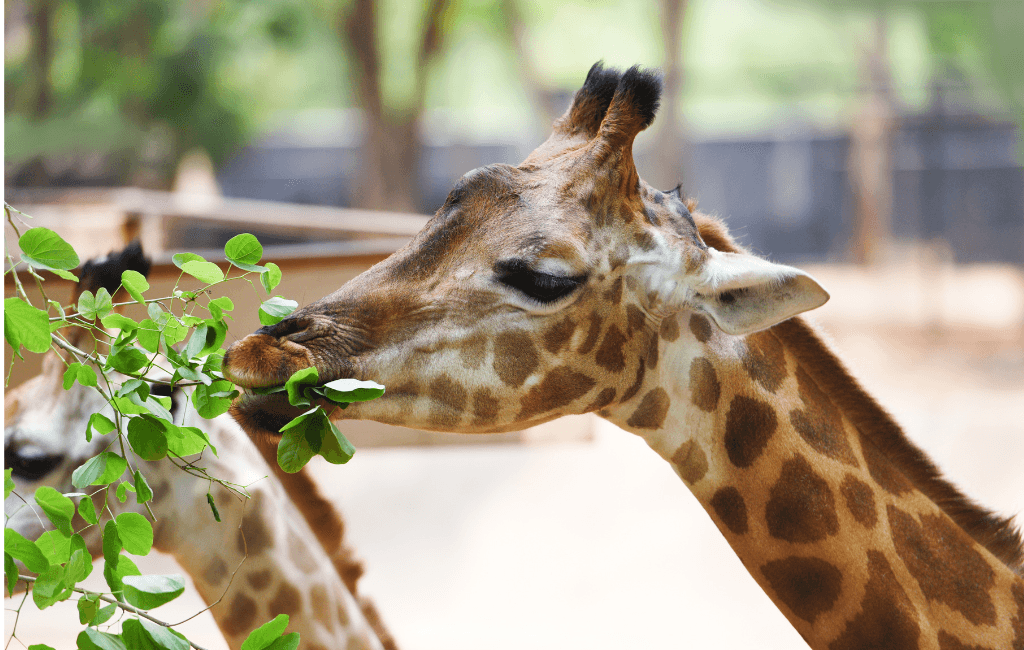Développez et renforcez vos compétences
FORMATION: Herbivore management
Acquire and/or improve zoological knowledge and technical skills relating to the management and welfare of herbivores in zoos

Prochaine session planifiée
Please contact us / Please contact us
Pedagogical objective
This course provides the opportunity to acquire and/or deepen zoological knowledge and technical skills relating to the management and welfare of herbivores in zoos, based on scientific assessments (ethology) and shared experience.
Skills acquired at the end of the course
- Know the various fields of application of ethology
- Be able to explain the role and importance of ethology in conservation programmes
- Know and understanding the different methodologies used in ethology
- Know how to construct an ethogram
- Have a basic understanding of how to develop an observation protocol
Course content
Module 1: Biology, physiology and ecology of the species, behavioural characteristics, social organisation - in the wild
Knowing the species' biology and behavioural repertoire, as well as its specific physiological data (ecology and ethology, inter-specific and inter-individual differences) is essential for providing suitable conditions for animals in captivity.
- Taxonomy
- Geographical distribution
- Ecosystems and diet
- Daily activities and behavioural diversity
- Reproduction
Module 2: Providing a favourable environment for the welfare of captive animals
The daily work of the teams aims to ensure the welfare of the animals by providing a stimulating and suitable environment. This work also depends on the practical and logistical aspects of the facility, and these operational parameters must be considered when adjusting the facilities and selecting groups to be housed.
- Enclosure layout and safety, practical and logistical aspects
- Stimulation and environmental enrichment
- Feeding
- Health risks and zoonoses
- Human-animal interactions
- Management of individuals and groups
- Population management
Workshops and practical exercises:
- Feeding captive herbivores
- Analysis of existing enclosure layouts: strengths and weaknesses
Pedagogical, technical and supervisory resources
The course includes theoretical contributions, workshops and practical exercises, discussions and feedback. In the training room, the course is led using visual aid (PowerPoint and audiovisual material), while the workshops and practical exercises are carried out within the zoo.
Prior to the training, a preparatory meeting (either via phone or face-to-face) will be held with the supervisors.
Monitoring and assessment
An attendance sheet is signed by each participant and the instructors for each half-day of course. The acquisition of skills is assessed during the course (training games, role-playing, etc.).
The course is assessed based on its quality and the effectiveness of the instructors, using a questionnaire that each participant fills anonymously. A certificate of completion is issued to each participant at the end of the course.
Informations
- Public :
- Soigneurs et équipe animalière, équipe pédagogique.
- Capacité :
- 12 personnes maximum
- Prérequis :
- Working with herbivores in a zoo or wildlife park
- Durée :
- 2 journées
- Localisation :
- In your premises or at a partner zoo
- Tarif :
- Please contact us for a quote
4.5sur 5 étoiles
Accessibilité
Nos formations s’inscrivent dans une dynamique de l’accessibilité à tous. Pour optimiser la qualité de notre prise en charge, les personnes en situation de handicap sont invitées à nous en informer dès la prise de contact, en nous précisant la nature du handicap.